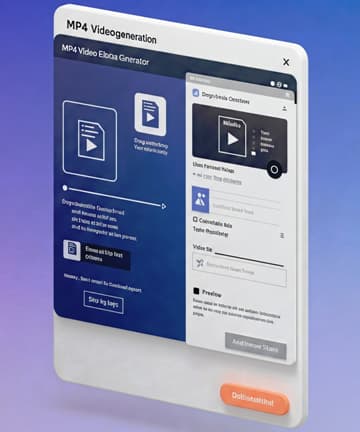🔍 Landing Page Analyzer
Analyze your blog post's landing page performance and get actionable insights
Landing Page Analyzer Tool: Your Secret Tool to Blogging Success
Your landing page success for your blog post is a hit or miss with your blogging strategy. That's why I've developed this landing page analyzer tool – to give you, fellow bloggers, instant feedback on what is working and what isn't.
Think about it. You spend hours crafting the perfect blog post, but if your landing page does not convert visitors into readers, subscribers, or customers, all of that effort is for naught.
What is this Landing Page Analyzer Tool?
It is a comprehensive performance audit designed specifically for use with blog posts. Unlike standard website analyzers, it deals with metrics most relevant to bloggers and content creators.
The analyzer analyzes five vital areas of your blog post. Page load speed is measured first because slow websites kill conversions. Mobile performance follows as most readers access the site on phones. SEO scoring makes your content rank higher in search results. Content readability ensures your message resonates with readers. Last but not least, conversion elements tracking indicates how effective your post is in triggering reader action.
You don't need technical knowledge to use it. Simply paste your published blog post URL, click on analyze, and get actionable feedback in seconds.
How Do You Use This Tool?
Using the analyzer is as simple as can be. Copy the URL of your published blog post from your Blogger dashboard. Paste it into the tool's input field. Press the "Analyze Landing Page" button. Let the complete scan run for about 30 seconds.
The utility then displays five performance indicators in color-coded scores. Green signifies excellent performance. Yellow suggests room for improvement. Red indicates areas to be addressed urgently.
Every metric has specific suggestions. Load time issues have image optimization recommendations. Bad mobile scores have responsive design tips. Bad SEO scores have meta tag optimizations. Readability problems have content structure fixes. Missing conversion factors receive clear action item lists.
You can re-run analyses to notice what is changing over time. Smart bloggers glance at their top-performing pieces and notice what is working, and carry those lessons over into new content.
Why Is Landing Page Analysis Important?
Optimizing your landing page has a direct correlation on your blog's success. Higher-performing landing pages result in more time on site, lower bounce rates, and higher search engine rankings.
See the figures. Pages that load in under two seconds see a 15% improved conversion rate compared to slower pages. Mobile-optimized content gets 67% more interaction than non-responsive alternatives. Tidy, simply organized landing pages with uncomplicated CTAs convert 5x better than cluttered versions.
Search engines favor fast, mobile-friendly pages with great user experience signals. When your landing page performs well, Google rewards you with better rankings. Greater rankings mean more organic traffic. More traffic means more opportunities for subscribers, sales, and brand growth.
The tool also assists in the identification of technical issues prior to damaging your rankings. Failing elements, bad mobile view, or lost SEO elements are red-flagged right away. Correction of these issues shields your search visibility and reader experience.
Who Can Use This Landing Page Analyzer?
Blogger platform website owners gain the most because the software is tailored to their hosting platform. Solo bloggers with poor engagement have easy pathways to boost engagement. Company bloggers find out why their blog posts are not converting readers into customers.
Content creators launching new blogs use it to establish sound optimization habits early. Professional bloggers apply it to competitive benchmarking and performance insights. Marketing teams apply it to their content pipeline for regular quality assurance.
Freelance authors and content agencies also benefit. The tool helps them create improved-performing content for their customers. SEO professionals leverage it for technical optimization opportunities. Small business owners running their own blogs get expert-level understanding without spending a fortune.
Even old bloggers with scores of posts are helped. They look over their best-performing content to determine what worked in their success. They are also able to identify underperforming posts that would be better with optimization updates.
Advanced Strategies for Best Results
Look at your top five top-performing pieces of content first. This sets a performance benchmark and highlights your best-performing content features. Then look at your newer underperforming posts to find where you can do better.
Compare your scores to those of competitor posts in your niche. Your better-performing competitors can reveal optimization strategies you can use. Pay special attention to their mobile scores and use of conversion elements.
Test prior and subsequent to attempts at optimization. Record changes you make according to tool recommendations. Re-calculate the same posts after updates to measure improvement. This gives a feedback loop that improves your optimization skills in the long run.
Schedule regular analysis of high-value posts. Algorithmic changes to the search engine and changing user behavior may affect performance. Regular checks allow you to spot and fix issues before they have a significant effect on traffic.
Measuring Your Success
Check specific metrics over time rather than stressing about one-off analysis reports. Improving trends matter more than raw scores. Follow consistent gains in load speed, mobile performance, and SEO scores across multiple posts.
Track the impact of optimization changes on your real-life blog performance. Google Analytics indicates whether load times that are quicker boost page views. Search Console indicates whether better mobile scores enhance click-through rates. Subscriber growth suggests whether enhanced conversion elements work.
Remember that landing page optimization is not a do-one-and-done job. Search algorithms evolve, phones evolve, and reader expectations change. Ongoing analysis keeps your content competitive and in its best form.
The greatest bloggers treat landing page analysis as maintenance. They don't wait for something to go wrong – they proactively optimize for better performance, higher rankings, and increased reader engagement.
Start breaking down your blog posts today. Your future self will thank you when you're enjoying better traffic, engagement, and conversions from the same great content you're already creating.





